Captain Nihilist Asks: Why do negative reviews?

From the desk of El Santo, a.k.a. Captain Nihilist:
Since the Webcomic Overlook is primarily a review site, I don’t usually engage in essays on criticism or reviewing. However, the subject of what makes a good critique is something that I don’t mind touching upon from time to time. Previous posts attracted the attention of my fellow webcomic critics, and there’s nothing I like more than hanging around with our snarky little Knitting Circle. We’re sort of an exclusive club, we critics of everything: in some respects, proliferating exponentially with the debut of the internet; in other respects, disappearing quietly into the night.
So if you’re someone who comes here to read up on my reviews, you might want to skip this post. This one’s for the critics. It’s probably going to be pretty boring for everyone else. So if you’re in the latter crowd, I humbly direct you to my delightful “Vikings Are Totally Lame” post on the parent site.
Sahi likes it.
For those of you staying, I’m also going to be quoting a lot of Roger Ebert. Not because I have a raging man-crush on him, or because I have a framed picture of him giving the thumbs up on my office desk. I think he’s written some of the most essential words on the subject … just from a film critic’s point-of-view.
I’d like to follow-up on a discussion I was having with Fes in the comment section of Webcomic Beacon: Episode #61. I felt that this episode, which dealt with the difference between webcomic hobbyists and webcomic professionals, was their best one yet.
Inevitably, though, the question of criticism came up. It stemmed from a tangential discussion that those who are hobbyists should be exempt from criticism because they’re doing it for fun. (The counter-argument: if it’s on the internet, it’s free to be criticized.) In a way, that’s fair: it’s kinda stupid for a TV reviewer to do a write-up for public access show, isn’t it? Then again, The Webcomic Beacon folks kinda did conclude that there is not division between hobbyists and professionals, so that line, once more, gets blurry.
More importantly for the purposes of this post, though, it was pointed out that bad comics should not be reviewed. Fes, I think, was especially chuffed that it seems all negative reviews ever do is give free publicity to the comic. He went so far as to say that CAD probably got its audience due to all the bad reviews.
This is, more or less, the Eric Burns-White approach to criticism. From his FAQ:
Hey! I know a webcomic that’s really terrible! Would you look at it so you can make fun of it?
Um. No. We don’t go looking for things to insult just so I can insult them. That’s not criticism. That’s just being mean. We don’t care if you think we’re funny while I’m being mean. We don’t choose to be mean to people just because we have a website. When we are sarcastic (or even mean) to sites, it’s usually after we’ve been following that site for years and really liked it at one time (or even still like it now). So, don’t bother e-mailing us links to Gonterman comics unless you actually like Gonterman’s comics and you want us to read them because you think that one of us will like them. There are plenty of all-negative snarksites on the web, if that’s what you want. We even read and enjoy some of them. But that’s not our thing.
Needless to say, this site doesn’t follow that philosophy. In my 90 reviews thus far, I’ve handed out 6 one-star ratings and 14 two-star ratings. (I don’t count anything beyond that a “bad” review, per se.)
In fact, I sorta resent the idea that you’re “just being mean” if you read something that you didn’t like at first and didn’t like in the end. I, like Mr. Burns-White, also don’t seek out bad comics, but I’ll still on long past the beginning in the fruitless hope that perhaps it’ll get better. I’m not just being mean. I’m also being a masochist, a sadist for detailing my experiences online, and an irascible grouch. It’s more work intensive.
What’s the most obvious reason to write a negative review?
People like reading them.
Webcomic readers will point out John Solomon’s site, but that format is hardly unique to webcomics. (And I don’t care what the nay-bobs say; he and his crew really were excellent at what they did. Just pull up other similar, less clever review sites that popped up in its wake to see why.) On my desk, I’ve got Mike Nelson’s Movie Megacheese, where he talks about all the bad movies he’s seen. Hell, Ebert himself released a book collecting his negative reviews called Your Movie Sucks. If you want to go far enough, snarkfests like The Daily Show gets accepted as a legit news sort for liberals (and I suspect that Rush Limbaugh gets the same cred from conservatives).
On my own site, 6 of the 10 ten most-read reviews got two-stars or less. (Remember, only 20% of the reviews I’ve written have been negative.)
Critics of critics (God, there’s got to be a better term than that) will say that while these are funny diversions, they’re not very productive and cheap ways to draw in readers. I disagree. More on that later.

What’s a less obvious reason to write a negative review?
You will come off as a more legitimate reviewer.
From Roger’s little rule book:
Be prepared to give a negative review. If you give one to the work of a friend, and they’re not your friend any more, they weren’t ever your friend. As Robert Altman once told me, “If you never gave me a bad review, what would a good review mean?” He was a great man. He thought over what he had said, and added: “But all your bad reviews of my films have been wrong.”
So I never take it to heart when someone starts up with the tired old “If you hate it so much, don’t read it” vitriol (which really means “don’t write about it”). It’s really something tossed off in anger, but if they stopped to think about it, what kind of world would this be if everyone only wrote good things about anything?
We’d all be friggin’ ad sites. That’s what we’d be.
As I’ve said before, negative reviews do the reviewer themselves a lot of good. The reader will know where we stand, even if they don’t agree with us.
So you said a negative review can be productive? In what way can it help the webcomic writer?
See, this is where I think a lot of critics hit a speedbump. They start writing to the webcomic creators themselves. I think there are painfully few people qualified to actually say if the webcomic artist is doing the right thing or not. They’re better to get their opinion from teachers… and even then, they’re not always right. (One of my favorite anecdotes: the guy who founded FedEx got a “C” on the paper that detailed his business plan. The rest of you can point out how Dr. Seuss was panned by his art teacher.)
Don’t write to the webcomic creators. If you really want them to improve, you can correspond via e-mail. I meant “productive” from the standpoint of the casual webcomic reader.
OK, smartypants… so in what way can it help the webcomic reader?
Here’s an excerpt from what I consider absolutely essential reading: Roger Ebert’s “‘Critic’ is a four-letter word”.
A lot of people don’t know what “critic” means. They think it means, “a person who criticizes.” They don’t like people who do that. It seems an impotent profession. Critics are nasty, jealous, jaded and bitter. They think it’s all about them. They’re know-it-alls. They want to appear superior to everyone else. They’re impossible to please. They don’t understand the tastes of ordinary people. They love to tear down other people’s hard work. Those who can do it, do it. Those who can’t do it, criticize. What gives them the right to have an opinion? We’d be better off without them.
Criticism is a destructive activity. If I like something and the critics didn’t, they can’t see what’s right there before their eyes because they’re in love with some theory. They don’t have feelings; they have systems. They think they know better than creators. They praise what they would have done, instead of what an artist has done. They use foreign words to show off. They’re terrified of being exposed as the empty poseurs they are. They are leeches on the skin of art.
Many wise words have been written in defense of critics, usually by themselves. Some of the wisest were written by Brad Bird, in “Ratatouille,” a cartoon about rats. He gives this speech to Anton Ego, a food critic:
“In many ways, the work of a critic is easy. We risk very little yet enjoy a position over those who offer up their work and their selves to our judgment. We thrive on negative criticism, which is fun to write and to read. But the bitter truth we critics must face, is that in the grand scheme of things, the average piece of junk is more meaningful than our criticism designating it so. But there are times when a critic truly risks something, and that is in the discovery and defense of the new. The world is often unkind to new talent, new creations, the new needs friends… Not everyone can become a great artist, but a great artist can come from anywhere.”
I think Anton is too hard on critics, although perhaps he is writing autobiographically. Is he correct that “average piece of junk is more meaningful than our criticism designating it so?” I would suggest that the average piece of junk is not meaningful at all, apart from the way it conditions the minds of its beholders to accept more pieces of junk. How important is criticism of it? Powerless, usually. Why do critics bother with it? I will appoint myself spokesman. We had to endure it and want our revenge. We enjoy writing scathing and witty prose. We know we are rarely writing for those who seek out junk. Perhaps we hope we entertain, and encourage the resolve of those who avoid it.
It’s weird how that Ratatouille quote has sorta become the Gettysburg Address in discussions about critics, isn’t it? It’s used for both pro- and anti-criticism sides of the argument. Scott Kurtz even brought it up to defend his slightly anti-critic point-of-view in the Webcomic Weekly recorded in the aftermath of the Kurtz/Carlson dust-up. Me, I think Mr. Ebert is closer to interpreting the true meaning. Brad Bird is, after all, the same guy who had Syndrome evilly sneer in The Incredibles, “When everyone’s super, no one will be.”
I love that quote in the last part: “We want our revenge.” That gets to the heart on my own motivations.
But here’s the most crucial part of his essay:
I believe a good critic is a teacher. He doesn’t have the answers, but he can be an example of the process of finding your own answers. He can notice things, explain them, place them in any number of contexts, ponder why some “work” and others never could. He can urge you toward older movies to expand your context for newer ones. He can examine how movies touch upon individual lives, and can be healing, or damaging. He can defend them, and regard them as important in the face of those who are “just looking for a good time.” He can argue that you will have a better time at a better movie. We are all allotted an unknown but finite number of hours of consciousness. Maybe a critic can help you spend them more meaningfully.
Don’t think for a second that I am proposing myself as that critic. I am only trying to define what I aspire to. I have learned most of what I know about movies from other critics, and by critics I mean everyone who has ever given me an interesting insight into a film. If “Siskel & Ebert & Roeper” had any utility at all, it was in exposing viewers, many of them still children, to the notion that it was permitted to have opinions, and expected that you should explain them.
In other words, Ebert believes his primary mission wasn’t to define what was good art and what was bad art. Rather, it was to give people the impression that it was OK to have an opinion and to understand why you have that opinion.
I don’t think people read negative reviews simply because it’s entertaining to watch someone pick-apart a trainwreck. People read them because, oftentimes, they’re more open. By pointing out what went wrong, they’re subversive windows into what constitutes a decent webcomic. They’re rebellious and seemingly brave, resisting every sordid attempt by everyone and everything that what’s being read is actually good. They’re a testament that not everything is great, and we shouldn’t be satisfied with “the average piece of junk.”
Freedom of thought, man: it’s a dizzy, crazy, euphoric feeling.
But negative reviews are destructive to the webcomic community! They embiggen none of us!
Recently, Bengo wrote a post criticizing Gary Tyrrell of popular webcomic blog Fleen. Now, I’m not in total agreement with Bengo, but I haven’t done the research or soul-searching that he has. The best I can do at this point is keeping his opinion to heart.
However, It’s not so much the post that got to me but one of the responses after (by Floating Lightbulb reader JM Brown):
It’s not difficult to see Fleen showing favoritism to certain creators but the webcomic community can’t grow if everyone is sniping each other behind the back.
I’m not trying to pick on JM Brown. He seems to be a reasonable guy. The sentiment, though, is something I’ve personally seen posted many times over in other webcomic-related discussions. “Don’t say anything bad… or you’ll ruin everything!”
First, that’s completely false. Pundits in the print industry have been predicting for a long time that comics will eventually make the transition from print to web. The big time publishers — DC, Marvel, Dark Horse, and Image — have made significant investments to increase their online presence. The current economic crisis, too, may actually benefit webcomics rather than hinder them. In my previous post, for example, Mr. Clevinger wonders if the changes in Diamond Comics Distributors policy will pretty much force independent comic creators to a webcomic format. So growth is going to happen no matter what.
And second, how does complaining kill growth, anyway? This country (the United States, in my case) was founded by whiners! Seriously, the colonists were living the good life under one of the least oppressive empires in world history. Look at the Declaration of Independence: it’s, like, whine, whine, whine, whine.
OK, so that’s gross oversimplification. And I’m not suggesting that the Founding Fathers were wrong. My point is that no one would have succeeded if everyone was being a nice little boy and never, ever raised their voice about something they didn’t like.
So, anyway, that’s the end of my take on the usefulness of negative reviews. Tune in next week for something fluffier … and, perhaps, more controversial.
Posted on January 30, 2009, in The Webcomic Overlook, webcomics. Bookmark the permalink. 27 Comments.



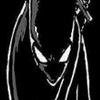
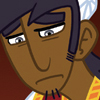









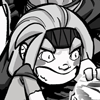


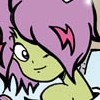
































































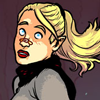



















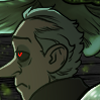





Good food for thought, El Santo. Thanks for sharing. I recently did a mixed review, and after I finished the review I had mixed feelings about it, but it’s good to be reminded that for a variety of reasons, negative reviews have the potential to be valuable.
Well, I would not say that hobby webcomics should be “exempt” from criticism… but moreso that they should not be held to the same standards demanded by professionalists.
That asside, this was a good read, and many good points have been brought up. I now do see why people should not shy away from doing negative reviews.
As a webcomic creator, I very much appreciate the negative reviews. They give me a chance to examine the mistakes others have made so that I may avoid making them myself.
And furthermore, as PT Barnum said, “All publicity is good publicity.” Even a bad review will direct readers to a comic’s site, and some of those readers will actually like what they see there. After reading El Santo’s (two-star) review of Wayfarer’s Moon, I’ve become a regular reader. I agree with most of his criticism of that comic, but I still like it well enough that I am continuing to follow it.
As a creator, I tend to find all reviews useful if they include explanation of why the comic struck them the way it did. As a reader… not so much. If it sounds interesting and there’s a link, I’ll click on it. Doesn’t matter what the reviewer thought of it.
As far as the debate on how to approach hobbyist reviews, I don’t think that should be a consideration. If it’s a serious attempt then it deserves serious commentary. I strongly disagree that there should be a sliding scale of “standards” though. Lowering the bar is the absolute opposite of encouraging better comics. And that should be the purpose of a review whether it’s positive or negative.
Think of it this way… would you judge someone playing in a city/community baseball league for fun… the same as you would judge a professional athelete in the Major League Baseball? What about someone playing backyard ball?
They are in entirely different… well.. Leagues, playing for, typically, different reasons.
I mean, yes, you can give the same criticisms for the same reasons, but you also must understand that Backyard baseball is not (in most cases) held up to the same standards as the Majors. You are not going to “fine” your kids for show up late, or losing an inning. If you do, you’re a dick to your own children.
Or take The Long Jump in track… Someone just trying it for fun, to see how far they can jump… and they some guy comes up and start critiquing their form, running, stance, and says they should have jumped further…
Certainly, one is entitled to give their opinion, but this jumper is just doing to say, “Who the hell are you?” … A jolly sprint and jump for fun is not the same as an Olympian actually training and trying to jump farther.
Or even using pole jumping as an example… with an actual bar to be lowered and raised. Someone just wanting to try it for fun will most likely need a lower bar. Why? because (a) they know they are not professional grade and (b) they are not trying to be.
Beyond that, just because the bar is lower for them, does not mean that the bar is lowered for everyone in webcomics. It’s not! Just because all webcomics are in one place (online), it does not mean that they are all in the same league. Webcomics is not some sort of exclusive club, with a sign outside saying “You must be at least this good to enter.”
In the print world, yeah, it’s more divided, as far as print comics go. You have your high trades like Marvel and such… you have your other prints, collections… down the line you have your independents, and then you have your tried and true self-published books… and of course your DIY, homemade… well.. booklets that you usually find at independent shops or coffee houses, and tend to be free anyway.
Different markets, different leagues, different audiences, different ambitions, different intents, different standards.
Again, I’m not saying that people can’t say what they want about something… By all means, freedom of speech. I’m saying that there ARE differences, in both level of skill and level of desire and intent.
It’s not lowering the bar…. it’s using a different bar completely.
It also goes for if a hobbyist is asking for crits, versus not. Then it boils down to “Well who the hell asked YOU?” Further more, if said hobbyist DOES ask for crits, I would say that they are themselves instigating being judged by higher standards.
I’m not going to give an unsolicited negative review to a hobbyist doing it for fun and say “I’m sorry, you are not expressing yourself good enough.”
At least that is how I see things… from here, I fear, we might fall into a subjective debate of “what is art” and such… which I am going to refrain from getting into… but I think I spelled out my point and stance on the subject as best I can. I’ll basically resort to a “agree to disagree” standpoint.
Anyway, I apologize for rambling…. I just feel strongly on this.
I wasn’t clear. When I said “serious attempt”, I meant someone reaching for a high level of quality. Yes, experience level is a factor. Yes, different people trying a high jump need different levels. They should NOT be judged in the same place at the same time. You don’t have someone trying to jump over a bar on a lark at the Olympics. Reviewers choose the level of criteria they want to use to review. It’s just a pet peeve of mine when the reviews using high standards and those at “participation medal” level are tossed together with no notice given to criteria. I admit it, I’m a snob. The end.
My comment was based on the lack of knowledge behind the history of FL and Fleen. When I see one internet icon take shots at another internet icon the first thing I think about are the scene kids who argue back in forth on livejournal about inane feuds and melodrama. Once I dove through the archives and read up on the history behind fleen, I understood the ground the article stood upon.
I did this thinking last year and it led to the death of myself as ‘Webcomic Witchfinder’ which was predominantly ‘mean’ and far too easy – to my rebirth now as, well, just plain old mpd57, myself. A much more positive reviewer. Instead of looking for the bad I’m looking for the good. That doesn’t mean that when I find the bad I don’t describe it accurately – I’m just making more of an effort. It’s a much harder job to not rely on easy gags at someone else’s expense. Not that this is an excuse for anything I might have said before. I was telling the truth back then, but now I’m making more of an effort in how I tell that truth. I don’t want to beat anyone up any more than I want to polish egos!
And I try and keep the soul searching to a minimum.
As one of the reviewers who rarely gives negative reviews, I felt the need to comment on this. There is a good (if selfish) reason why I and some of my peers are not as apt to write a negative review: we’re spending our time reading and rereading these comics; If we have a significant dislike of the comic, why should we waste our time writing a negative review about them?
Mind you, I’m also friends with another reviewer who takes the opposite take: he considers it the duty of reviewers to warn people away from the movies (in his case) or comics that are not very good. And I will admit, of late I have started using the power of the negative review, if in moderation. However, I work to write constructive critical commentary in that case.
You mention John Solomon and his cronies. While they did manage to write fairly amusing if vulgar reviews, the two real problems with his reviews were that they were used to attack the cartoonists, and that there wasn’t anything constructive in the reviews. Writing “this sucks” doesn’t tell anything but a personal opinion. Writing “the artwork lacks any consistency and is confusing” is a far better way of articulating the problem, and might help the cartoonist find ways to improve.
Reviews and criticism are meant not only for potential readers, but also for the creator of the product being reviewed. Without constructive criticism, improvement cannot occur, and the review lacks purpose. Mind you, this is also true of positive reviews that fail to articulate what parts of the comic work. Saying “this is great!” doesn’t help the artist to realize just what parts of the comic work.
Finally, even negative reviews work to bring in readers. One thing I have stated numerous times over at Tangents is that readers should make up their own mind. Eric Burns railed against GPF and felt the story should have ended after one of the large story-arcs. I read it and didn’t see the same problems Burns did, and actually enjoyed that story-arc more than Burns did. Another example lies in a recent somewhat-negative review I wrote where several people enjoyed the whimsical aspects that I felt were not effective in the comic. To each their own.
Rob H.
Thanks for keeping the discussion civil, everyone.
I have to say, there are a lot of well-reasoned insights here. I think the most valuable thing to take away is that everyone has to define their own set of rules on how to approach webcomics and to be consistent when reviewing.
I’d say more, but I already devoted 2000+ words and copy-paste above, and I don’t want to sound like I’m repeating myself.
My position has always been that whenever you put something up on the web, you’re making a tacit statement that it’s worthy of others’ attention and, in most cases, praise.
In other words (and I say this as a creator as well as a reviewer) I feel the entitlement complex works in the other direction–not the critic feeling entitled to a place at the same level as the creator, but the creator feeling entitled to positive feedback or ‘constructive criticism.’
I put constructive criticism in quotes because all artists ask for it, but not all artists define it the same. For far too many, ‘constructive criticism’ is code for ‘effusive praise, just with fewer smilies and exclamation marks.’ I cut my Internet teeth on a community where anything approaching serious critique was absolutely verboten. And guess what kind of art that community produced? The most artless, incompetent, derivative sub-pabulum this side of DeviantART.
It was only when I got away from that community that I started to grow as an artist. And I think, similarly, the culture needs to get away from the attitude it represents. There’s no elixir for the bad creator, the good creator, any creator interested in personal growth like a grounded, realistic self-assessment. Maintaining that is the responsibility of both creator and critic.
To respond to a comment that Tangents made…
Writing “this sucks” doesn’t tell anything but a personal opinion. Writing “the artwork lacks any consistency and is confusing” is a far better way of articulating the problem, and might help the cartoonist find ways to improve.
That’s true, but the thing is that John Solomon never stopped at just “this sucks.” This may be a bit of a stretch, but it seems reasonable to assume that all negative criticism can be boiled down to the formula “X is bad” with varying degrees of specificity for X. For example, saying “the artwork lacks consistency and is confusing” is simply saying the way in which the artwork is bad and detrimentally affects the comic’s quality. Solomon frequently went into the details of comic badness: “You do not create a WALL OF TEXT with a few illustrations,” “let’s get back to the point of explaining why this story is bad – as if “the main character is a crappy Mary Sue” isn’t enough,” and “If you’re competent, then…what [your stupid character] will do next is obvious, because you know their personality like it’s your own” are all excerpts from the most recent entry, all of which have a high degree of specificity. Just because John Solomon was acerbic as all hell in delivering his criticism doesn’t mean that the criticism wasn’t based on valid standards of comic analysis.
To respond to deathbychiasmus’s remark, my primary problem with Solomon wasn’t his attacks on comics. My issue with him was his insistence on attacking the cartoonists behind the comic. Indeed, in the few instances he didn’t attack the person behind the pen, his reviews fell flat on its face (the El Goonish Shive review being a case in point).
Steve Anderson for a bit was doing reviews at Panel2panel (before the site went down), and he was quite caustic when talking about comics. Indeed, even comics he rated with three or four stars he’d be critical about. However, he didn’t attack the cartoonist. He kept his ire to the work rather than the artist. (Indeed, outside of Uwe Boll and one or two other horrible movie producers, his Reel Advice column is much the same, taking a hard look at the movies while leaving personal remarks on the back burner.)
I’ve stared down some truly horrible comics in my time. But what matters isn’t the fact the artist might have some issues or might not exactly be the most polite of people, but the work itself. It’s far better to focus on that work rather than the artist, especially if you’re being critical of it. That way, the attacks aren’t personal; they’re subject-specific.
And while the cartoonist may have put their soul into that work and feel upset that you said those “horrible” things about their baby (and I’ve had cartoonists quite upset at some of my reviews in the past, including Dan Shive), when they take a step back and look at what’s said, they realize that the review contains the tools they need to improve their craft.
Rob H.
Well, that’s a fair assessment, and a good clarification. I will agree that John Solomon was just about as liberal with the personal attacks as he was with the scathing-but-legitimate artistic criticism.
None of you has really touched on the reason I like negative reviews:
I just don’t have time to read through every webcomic out there.
Something I’ve noticed is that most people are much, much too lenient when they talk about webcomics. When I read ‘What webcomics are good?” message board threads, I invariably find people praising comics that range from the mediocre to the outright bad.
Last time I actually called somebody out for praising Dominic Deegan as really good, because it’s just objectively not.
I mean, if nothing else, the art is mediocre and derivative. That should disqualify it from being labeled ‘great”
This quote of Ebert’s really gets to the heart of it, for me:
“the notion that it was permitted to have opinions, and expected that you should explain them.”
I think it’s important to understand the distinction between things that are good, and things that you like.
For example, Tezuka is probably the finest cartoonist that has ever lived. He massively expanded the limits of the art. But that doesn’t mean that I, personally, always prefer to read Tezuka books. There are lots of cartoonists who are inarguably worse who I still enjoy more.
Or, on the other side, I like watching the old Transformers cartoon even though it is objectively terrible.
The thing is, lots of people don’t understand this. The thought process is simply “I like Dominic Deegan, therefore, Dominic Deegan must be great.”
This is true of everything people talk about on the internet, but I find it especially true of webcomics.
That’s why I loved Your Webcomic is Bad; it was just so cathartic to see somebody who was actually willing to say that some things are bad, and not praise mediocrity as brilliance.
The only way your recommendations can really mean anything is if you’re capable of looking beyond yourself, of asking, “What about this do I like? Will other people also enjoy those qualities?”
A critic kind of has to do that, just because otherwise there’s nothing for them to talk about. If you read a given critic enough, you start to understand what things they like and what they don’t like, so that you can say to yourself, “Okay, this critic thinks that Movie X doesn’t have enough of a plot, but I like mindless action movies.”
But, as Altman said, if a critic never gives a bad review, part of the puzzle is gone; if they just like everything then it’s impossible to figure out what standards they use to judge things, and then it’s impossible to know whether their standards match yours.
That’s the crux of it, for me; I read critics so that I don’t waste my time looking at crap I won’t like. Anybody can publish a webcomic, and I don’t want to personally sift through a huge pile of crap looking for the good ones. I want some help.
I think it’s odd how in all these talks there’s always lots of discussion about how criticism effects the critics or the webcomic artists, but very little about how it effects webcomic readers.
And, personally, I think that the whole purpose of criticism is to help the people who look at art, not the people who make it.
Thanks for the article. It really hit home for me, and had a lot of great points.
I’ve been kind of dazed about this “war on criticism” people seem to have, where they argue that if you have ANYTHING bad to say about something (and this ranges from constructive, helpful advice to flat out “this sucks and didn’t work for me”), you shouldn’t be allowed to comment on it at all. You aren’t allowed to publicly dislike anything, or else you’re just a poopy doopy meany head who hates art. Where did this idea come from?
It’s because I care about art, webcomics, etc. that I critique them. I hold art to the standards I know it can reach. When you make your work public and expose it to the masses, you’re asking for ALL kinds of feedback, not just asspats.
Eventually, those who are serious about their craft will realize this, stop taking criticism personally, and start improving.
El Santo, this might be my favorite thing you’ve put on this site. I occasionally write reviews, and though mine are rarely what could be considered “harsh,” I still feel compelled to defend other critics who have a few more complaints than I do. Thanks for the good read.
Hi there! I could have sworn I’ve visited your blog before but after browsing through many of the posts I realized it’s new
to me. Regardless, I’m certainly happy I came across it and I’ll be book-marking it and checking back
frequently!
It is truly a great and useful piece of info.
I am glad that you simply shared this helpful info with us.
Please keep us informed like this. Thank you for sharing.
I’ve been surfing online more than 4 hours today, yet
I never found any interesting article like yours. It’s pretty worth
enough for me. In my view, if all website owners and bloggers made good content as you did,
the net will be much more useful than ever before.
Excellent post. I definitely love this site. Thanks!
The two points that drive me totally crazy are the fact that
I can’t alter my background.
Hi everyone, it’s my first visit at this site, and piece of writing
is truly fruitful designed for me, keep up posting
such articles.
%url
印度小叶紫檀手串
Pingback: ART PATIENT RECOVERS! « Om Namaha Ganesha
Pingback: The Gigcast » Blog Archive » Webcomic Wire - 2/5/09
Pingback: The Webcomic Overlook #96: Jack « The Webcomic Overlook